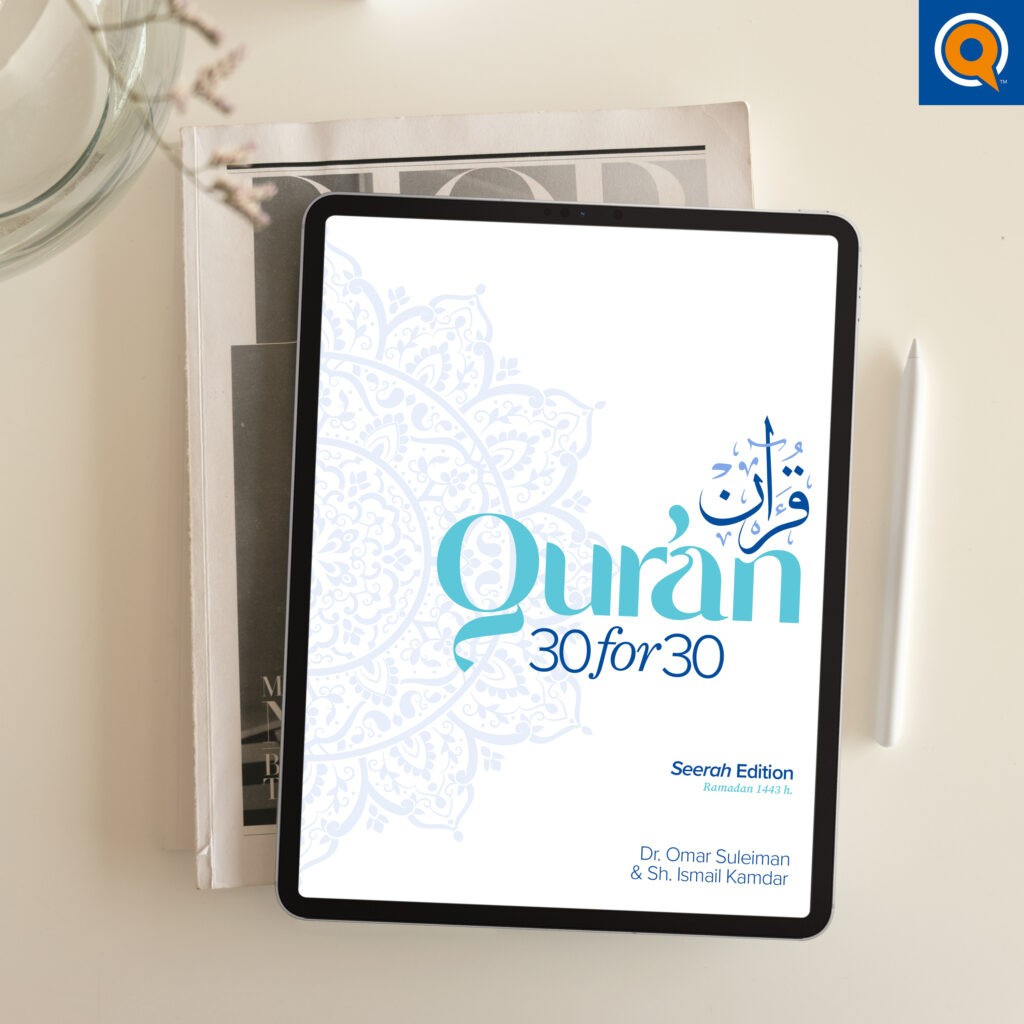وَاعْتَصِمُوا بِحَبْلِ اللَّهِ جَمِيعًا وَلَا تَفَرَّقُوا ۚ وَاذْكُرُوا نِعْمَتَ اللَّهِ عَلَيْكُمْ إِذْ كُنْتُمْ أَعْدَاءً فَأَلَّفَ بَيْنَ قُلُوبِكُمْ فَأَصْبَحْتُمْ بِنِعْمَتِهِ إِخْوَانًا وَكُنْتُمْ عَلَىٰ شَفَا حُفْرَةٍ مِنَ النَّارِ فَأَنْقَذَكُمْ مِنْهَا ۗ كَذَٰلِكَ يُبَيِّنُ اللَّهُ لَكُمْ آيَاتِهِ لَعَلَّكُمْ تَهْتَدُونَ
And hold fast to the rope of God, altogether, and do not become divided. And remember God’s blessings upon you; how you were enemies, and He reconciled your hearts, and by His grace you became brethren. And you were on the brink of a pit of fire, and He saved you from it. God thus clarifies His revelations for you, so that you may be guided. (3:103)
Beware the devil’s tricks
One of the tricks of the devil is to distract and misguide us as we get closer to Ramadan. One of the tricks that many of us fall into every year is that instead of focusing on worshiping Allah and improving ourselves, we waste these blessed days with disunity, fighting and sectarianism. The same topics come up every year around this time that cause unnecessary conflict and disunity between Muslims. These are often secondary issues that are open to interpretation, yet somehow, we allow them to become points of division and contention in our community.
Here are some general principles on how to deal with these differences properly. Key areas of conflict and fighting at this time of the year include the 15th of Shaban, moon sighting, and the number of rakah of taraweh. Every year we argue about these same three things.
Let’s start with the 15th of Shaban, which is today, or last night. Every year, two groups argue with a lot of heated animosity about whether there are any merits to the 15th of Shaban. These groups treat each other as enemies while in reality they simply represent two different opinions within the same tradition. The difference of opinion on the virtues of the 15th of Shaban boils down to one simple issue: there exist a few hadiths about the virtues of this night, and scholars differ on whether these hadiths are acceptable or not. Those who hold it as acceptable, consider it a virtuous night and those who consider these hadiths as weak do not. It is simple as that. Both camps are trying their best to follow authentic hadiths but differ over whether a specific hadith is authentic or not. This should not be a cause of division, because both opinions exist within the same tradition for centuries, so follow whichever opinion you believe is stronger while respecting the other opinion.
This is really the core principle that we need to live by: follow what you believe is the strongest opinion while respecting those who have different opinions that are also based on legitimate evidence and proper methodology.
Moon Fighting
Likewise, the issue of moon sighting is a fiqh issue. The beginning and end of months is a matter of speculation, it is dhanni in fiqh terms, and Allah will accept your Ramadan regardless of which opinion you follow. In the past, the Caliph will declare the beginning and end of Ramadan. Nowadays, in Muslim countries the government does so, and each government has their own approach. As a minority without a Muslim government, these differences become bigger because we do not have a unifying authority to force people to follow the same opinion. So, what do we do, we accept that there are different opinions regarding this issue, opinions include local moon sighting, global moon sighting, regional moon sighting or following calculations. Every opinion is based on principles of fiqh and has a basis in the tradition. Without a political authority to enforce a specific opinion, we need to let this issue go. If someone follows a different opinion on moon sighting, let it be. Allah will accept there ibadah and yours, because Allah’s Meryc is wide and covers all legitimate opinions.
The same applies to taraweh. Every year people argue over Taraweh in many ways. Is it 8 rakah or 20 rakah, is it optional or compulsory, do you have to recite the entire Quran, are women allowed to pray taraweh in the masjid, is the best time to pray it after esha or at Tahajjud time, why was this introduced by Umar, why did Umar call it a good bidah? And so on, and so on. There are so many angles from which we argue about taraweh that we end up missing out on the point of it, the point of taraweh is to increase in our communal worship of Allah during the nights of Ramadan. If one community does 20 rakah after Esha, and another does 8 rakah at tahajud time, both groups are following hadiths that are authentic and their worship will be accepted, as Allah’s Mercy is wide. So, instead of arguing with people about taraweh, focus on worshiping Allah and maximizing your spiritual benefit from this important act of worship.
So, whether it is the virtues of the 15th of Shaban, the moon sighting of Ramadan and Eid, or the number of Rakah of Taraweh, there will always be different opinions on these issues. Do not let that cause animosity between you and your fellow Muslims and do not let it distract you from worshipping Allah. Focus on what matters; getting closer to Allah and maintaining good relationships with the believers is more important than these differences of opinion. So let them be and focus on your priorities.
Dealing with Differences of Opinion
Here are a few basic principles for dealing with differences of opinion. The reality is that humans will always differ with each other. Even the believers will have different understandings and interpretations of the religion, this is natural, and it will not go away. Instead of making these things a source of animosity, hatred, and anger, we need to learn to co-exist with people even if we have major differences with them. This is especially true as a minority in a non-Muslim land. We have weakened our own community by dividing this minority into smaller and smaller minorities by focusing primarily on our differences. We need to learn to unite, in spite of our differences, so here are five tips on how to deal with differences:
- Recognize and acknowledge the differences. It is healthier to acknowledge your differences with other and to be aware of it, than to pretend they don’t exist. Pretending that differences don’t exist builds up unnecessary animosity and resentment. It is better to be frank and honest then to pretend no differences exist.
- Understand the other person’s perspective. Take time to understand each other and why we differ. This helps humanize others and understand their life journey and choices better, even if you majorly disagree on what they believe.
- If it is a secondary issue, do not make an issue of it and let people follow whichever opinion they believe is stronger.
- If it is a primary issue like an issue of theology, then assert and clarify your position, and then let them be. You cannot convince everyone of your position, and even Muslims with major theological errors are still your brothers and sisters in Islam and still have rights over you.
- Focus on what you have in common and on the good qualities that others have, instead of focusing only on the differences.
We ask Allah to accept our deeds, unite our hearts, and to make this Ramadan a source of blessings and guidance for us.







